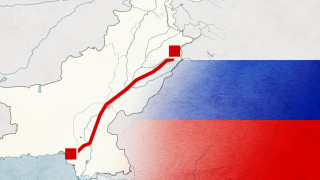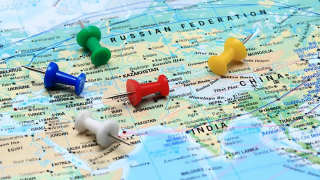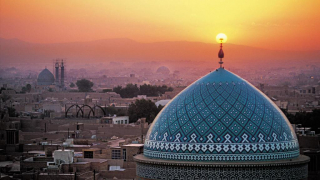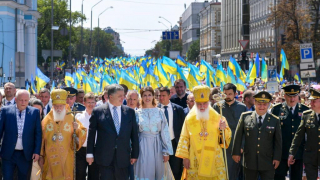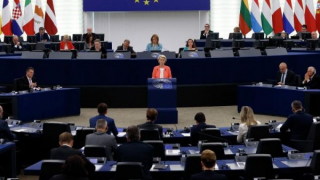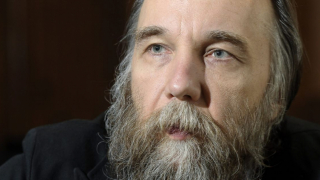Russian President Vladimir Putin in his 2024 Address to the Federal Assembly
President of Russia Vladimir Putin: Senators, State Duma deputies,
Citizens of Russia,
The primary purpose of every Address to the Federal Assembly is to offer a forward-looking perspective. Today, we will discuss not only our short-term plans, but also our strategic objectives and matters which, I believe, are instrumental in ensuring steady long-term development for our country.
This programme of action and the specific measures it includes largely result from my trips to the regions and the conversations I had with workers and engineers at civilian and defence plants, as well as with doctors, teachers, researchers, volunteers, entrepreneurs, large families, with our frontline heroes, volunteers, soldiers and officers of the Russian Armed Forces. Of course, it’s clear that these conversations, these meetings don’t come out of nowhere – they are organised. Still, these exchanges do offer people an opportunity to talk about their pressing needs. Many ideas came from major civil society and expert forums.
The proposals submitted by our people, their aspirations and hopes became the foundation, served as the main pillar of the projects and initiatives that will be also announced today, during this Address. It is my hope that public discussion on these topics will continue, since it is only together that we can fulfil all our plans. In fact, we have major tasks ahead of us.
We have already proven that we can deliver on the most challenging objectives and respond to any challenges, even the most formidable ones. For example, there was a time when we fended off international terrorist aggression and preserved our national unity, preventing our country from being torn into pieces.
We supported our brothers and sisters; we supported their decision to be with Russia, and this year marks the tenth anniversary of the legendary Russian Spring. But even now, the energy, sincerity and courage of its heroes – the people of Crimea, Sevastopol, and the rebellious Donbass – their love for the Motherland, which they carried through generations, naturally makes one proud. This certainly inspires us and strengthens our confidence that we will overcome anything, that we will be able to do anything together.
This is how – all hands on deck – we were able to eliminate the deadly threat of the Covid-19 pandemic just recently. Moreover, by doing that, we also showed the world that values such as compassion, mutual support and solidarity prevail in our society.
And today, when our Motherland is defending its sovereignty and security, defending the lives of our compatriots in Donbass and Novorossiya, our citizens are playing the decisive role in this righteous struggle – their unity and devotion to our country, and our shared responsibility for its future.
They clearly and unequivocally demonstrated these qualities at the very beginning of the special military operation, when it was supported by the absolute majority of Russians. Despite the hardest trials and bitter losses, people have remained adamant in their choice and are reaffirming it by trying to do as much as possible for their country and for the common good.
Russian industries are working in three shifts to roll out as many products as the front needs. The entire economy, which provides the industrial and technological foundation for our victory, has shown flexibility and resilience. I would like to thank every business leader, engineer, worker and farmer for their responsible and hard work in the interests of Russia.
Millions of people have joined the We Are Together campaign and the Russian Popular Front’s project Everything for Victory! Over the past two years, Russian businesses have donated billions of rubles to volunteer organisations and charitable foundations that support our soldiers and their families.
People send letters and parcels, warm clothes and camouflage nets to the front; they donate money from their savings, sometimes very modest. Again, this kind of assistance is invaluable – it is everyone's contribution to the common victory. Our heroes at the frontline, in the trenches, where it is most difficult, know that the whole country is with them.
I would like to acknowledge the Defenders of the Fatherland Foundation, the Committee of the Warriors of the Fatherland Families, and other public associations for their tireless efforts. I urge the authorities at all levels to continue providing unwavering support to the families of our heroes, including their parents, spouses, and children, who anxiously await the safe return of their loved ones.
I am grateful to the parliamentary parties for uniting around national interests. Russia’s political system stands as one of the pillars of our country’s sovereignty. We will continue to advance democratic institutions and resist any external interference in our internal affairs.
The so-called West, with its colonial practices and penchant for inciting ethnic conflicts around the world, not only seeks to impede our progress but also envisions a Russia that is a dependent, declining, and dying space where they can do as they please. In fact, they want to replicate in Russia what they have done in numerous other countries, including Ukraine: sowing discord in our home and weakening us from within. But they were wrong, which has become abundantly clear now that they ran up against the firm resolve and determination of our multi-ethnic people.
Our soldiers and officers – Christians and Muslims, Buddhists and followers of Judaism, people representing different ethnicities, cultures, and regions – proved with their actions which are stronger than a thousand words that the centuries-old cohesion and unity of the people of Russia are a formidable and invincible force. All of them, shoulder to shoulder, are fighting for our shared Motherland.
Together, as citizens of Russia, we will stand united in defence of our freedom and our right to a peaceful and dignified existence. We will chart our own course, to safeguard the continuity of generations, and thus the continuity of historical development, and address the challenges facing the country based on our outlook on the world, our traditions and beliefs, which we will pass down to our children.
Friends,
The defence and the strengthening of sovereignty are going on across the board, primarily, on the frontlines, where our troops are fighting with steadfast and selfless resolve.
I am grateful to everyone who is fighting for the interests of the Fatherland, who endure the crucible of military trials, and put their lives on the line every day. The entire nation has the deepest respect for your feat, mourns the dead, and Russia will always remember its fallen heroes.
(A moment of silence.)
Our Armed Forces have acquired a lot of experience, including in terms of coordinating all the wings of the military, as well as mastering the latest tactics and methods of war. This effort has given us so many talented and seasoned commanders who treasure their men and are diligent in performing their missions, know how to use new equipment and are effective when fulfilling their assignments. I would like to emphasise that this is happening at all levels, from platoons and operations units to the highest command.
We are aware of the challenges we face. They do exist. That being said, we also know what needs to be done to address them. There is an ongoing and unrelenting effort unfolding both along the frontlines and in the rear in this regard in order to improve the striking power of the Army and the Fleet, to make them more tech-savvy and effective.
The Armed Forces have expanded their combat capabilities many-fold. Our units have seized the initiative and will not surrender it. They are confidently advancing in several operational theatres and liberating more territories.
We were not the ones who started the war in Donbass, but, as I have already said many times, we will do everything to put an end to it, eradicate Nazism and fulfil all the objectives of the special military operation, as well as defend sovereignty and ensure that our people are safe.
The strategic nuclear forces are on full combat alert and the ability to use them is assured. We have either already accomplished or are about to accomplish all our plans in terms of weapons in keeping with what I said in my 2018 Address.
Kinzhal, the hypersonic air-launched complex, has not only entered combat duty, but has been effective when carrying out strikes against critical targets during the special military operation. By the same token, Zircon, a ship-based hypersonic missile complex, has already served in combat. It was not even mentioned during the 2018 address, but this missile system has also entered combat duty.
Avangard hypersonic ICBMs, as well as the Peresvet laser complexes have also entered combat duty. Burevestnik, a cruise missile with an unlimited range, is about to complete its testing stage and so is the Poseidon, an unmanned underwater vehicle. These systems have proven that they meet the highest standards and it would not be an exaggeration to say that they offer unique capabilities. Our troops also received the first serially produced Sarmat heavy ballistic missiles. Soon, we will show them to you on their combat alert duty in the areas of their deployment.
Efforts to develop several other new weapons systems continue, and we are expecting to hear even more about the achievements of our researchers and weapons manufacturers.
Russia is ready for dialogue with the United States on issues of strategic stability. However, it is important to clarify that in this case we are dealing with a state whose ruling circles are taking openly hostile actions towards us. So, they seriously intend to discuss strategic security issues with us while simultaneously trying to inflict strategic defeat on Russia on the battlefield, as they themselves say.
Here is a good example of their hypocrisy. They have recently made unfounded allegations, in particular, against Russia, regarding plans to deploy nuclear weapons in space. Such fake narratives, and this story is unequivocally false, are designed to involve us in negotiations on their conditions, which will only benefit the United States.
At the same time, they have blocked our proposal which has been on the table for over 15 years. I am referring to the agreement on preventing the deployment of weapons in outer space, which we drafted back in 2008. There has been zero reaction to it. It is totally unclear what they are talking about.
Therefore, there are reasons to suspect that the current US administration’s professed interest in discussing strategic stability with us is merely demagoguery. They simply want to show to their citizens and the world, especially in the lead-up to the presidential election that they continue to rule the world, that they would talk with the Russians when it will benefit them and that there is nothing to talk about and they will try to inflict defeat on us otherwise. Business as usual, as they say.
But this is unacceptable, of course. Our position is clear: if you want to discuss security and stability issues that are critical for the entire planet, this must be done as a package including, of course, all aspects that have to do with our national interests and have a direct bearing on the security of our country, the security of Russia.
We are also aware of the Western attempts to draw us into an arms race, thereby exhausting us, mirroring the strategy they successfully employed with the Soviet Union in the 1980s. Let me remind you that in 1981–1988, the Soviet Union’s military spending amounted to 13 percent of GDP.
Our current imperative is to bolster our defence industry in such a way as to increase our country’s scientific, technological and industrial capabilities. We must allocate resources as judiciously as possible, fostering an efficient economy for the Armed Forces, and maximising the return on each ruble of our defence spending. It is crucial for us to expedite the resolution of social, demographic, infrastructural and other problems we face while simultaneously advancing the quality of equipment for the Russian Army and Navy.
This primarily applies to general-purpose forces, refining the principles of their organisation and deploying advanced unmanned strike systems, systems of air defence and electronic warfare, reconnaissance and communications, high-precision weapons and other types of weapons to the troops.
We need to shore up the forces in the western strategic theatre in order to counteract the threats posed by NATO’s further eastward expansion, with Sweden and Finland joining the alliance.
The West has provoked conflicts in Ukraine, the Middle East, and other regions around the world while consistently propagating falsehoods. Now they have the audacity to say that Russia harbours intentions of attacking Europe. Can you believe it? We all know that their claims are utterly baseless. And at the same time, they are selecting targets to strike on our territory and contemplating the most efficient means of destruction. Now they have started talking about the possibility of deploying NATO military contingents to Ukraine.
But we remember what happened to those who sent their contingents to the territory of our country once before. Today, any potential aggressors will face far graver consequences. They must grasp that we also have weapons – yes, they know this, as I have just said – capable of striking targets on their territory.
Everything they are inventing now, spooking the world with the threat of a conflict involving nuclear weapons, which potentially means the end of civilisation – don’t they realise this? The problem is that these are people who have never faced profound adversity; they have no conception of the horrors of war. We – even the younger generation of Russians – have endured such trials during the fight against international terrorism in the Caucasus, and now, in the conflict in Ukraine. But they continue to think of this as a kind of action cartoon.
Indeed, just like any other ideology promoting racism, national superiority or exceptionalism, Russophobia is blinding and stupefying. The United States and its satellites have, in fact, dismantled the European security system which has created risks for everyone.
Clearly, a new equal and indivisible security framework must be created in Eurasia in the foreseeable future. We are ready for a substantive discussion on this subject with all countries and associations that may be interested in it. At the same time, I would like to reiterate (I think this is important for everyone) that no enduring international order is possible without a strong and sovereign Russia.
We strive to unite the global majority’s efforts to respond to international challenges, such as turbulent transformation of the world economy, trade, finance, and technology markets, when former monopolies and stereotypes associated with them are collapsing.
For example, in 2028, the BRICS countries, with account taken of the new members, will create about 37 percent of global GDP, while the G7 numbers will fall below 28 percent. These figures are quite telling because the situation was completely different just 10 or 15 years ago. You have heard me say it publicly before. These are the trends, you see. These are the global trends, and there is no escaping them since they are objective reality.
Look, the G7 countries’ share in global GDP in terms of PPP stood at 45.7 percent in 1992, while the BRICS countries (this association did not exist in 1992) accounted for only 16.5 percent. In 2022, though, the G7 accounted for 30.3 percent, while BRICS had 31.5 percent. By 2028, the percentage will shift even more in favour of BRICS, with 36.6 percent, and the projected figure for the G7 is 27.8 percent. There is no getting away from this objective reality, and it will remain that way no matter what happens next, including even in Ukraine.
We will continue to work with friendly countries to create effective and safe logistics corridors, relying on cutting-edge solutions for building a new global financial architecture that would be free from any political interference. This is especially important considering that the West has been undermining its own currencies and banking system by literally sawing off the branch it is sitting on.
The principles of equality and respect for each other’s interests guide us in our interactions with our partners. This is why more and more countries have been proactive in seeking to be part of the activities of the EAEU, the SCO, BRICS and other associations involving Russia. We see a lot of promise in the project to build a Greater Eurasian Partnership and aligning integration processes within the Eurasian Economic Union and China’s Belt and Road Initiative.
There has been positive momentum in Russia’s dialogue with ASEAN. The Russia-Africa summits have been a real breakthrough, with the African continent becoming increasingly assertive in pursuing its interests and enjoying genuine sovereignty. We sincerely support these aspirations.
Russia has long-standing and positive relations with Arab states, which have their own unique and vibrant civilisation spanning across North Africa and the Middle East. It is our belief that we must find new points of convergence with our Arab friends and deepen our partnerships across the board. The same vision will guide our relations with Latin America.
On a separate note, I would like to ask the Government to allocate more funding to international programmes for promoting the Russian language and our multi-ethnic culture, primarily within the CIS space but also across the world.
Incidentally, friends and colleagues, I am sure that many of you have been to the Russia exhibition. People go there to see how rich and vast our homeland is and to show this to their children. The Year of the Family has been launched there. The values of love, mutual support and trust are handed down from generation to generation, just like our culture, traditions, history, and moral principles.
But the main purpose of the family is to have children, to procreate, to bring up children and hence to ensure the survival of our multi-ethnic nation. We can see what is taking place in some countries where moral standards and the family are being deliberately destroyed and entire nations are pushed to extinction and decadence. We have chosen life. Russia has been and remains a stronghold of the traditional values on which human civilisation stands. Our choice is supported by the majority of people in the world, including millions in Western countries.
True, today birth rates are declining in Russia and many other countries. Demographers say that this challenge is related to changes in social, economic, technological, cultural and value perceptions throughout the world. Young people get an education, try to make a career, and improve their living conditions, leaving children for later.
It is obvious that the economy and the quality of the social sector are not the only factors affecting demography and the birth rate. The life choices encouraged in the family and by our culture and education also have a tremendous impact. All levels of government, civil society, and the clergy of all our traditional religions must contribute to this.
Support for families with children is our fundamental moral choice. A multi-child family must become a norm, the underlying social philosophy, and the focus of state strategy. (Applause.) I join your applause.
We must ensure sustainable growth in the birth rate within the next six years. With this aim in view, we will make additional decisions regarding the education system as well as regional and economic development. I will speak about supporting families and improving the quality of their lives in nearly all parts of the Address. Pease bear with me, for I have barely started. Everything I have already said is important too, but now I will speak about the most important issues.
I will begin with a major issue, to put it mildly, which is the low incomes experienced by many large families. In 2000, more than 42 million Russians lived below the poverty line, but the situation has changed dramatically since then. As of the end of last year, the number of people living below the poverty line declined to 13.5 million which is also a lot, though. But we are constantly focused on finding a solution to this problem.
A number of measures have been adopted relatively recently. For example, a single monthly allowance for low-income families was introduced on January 1, 2023. It is payable from the time a mother becomes pregnant until the child reaches 17 years of age. Last year, more than 11 million people received it.
We have drastically simplified the procedure for concluding a social contract, prioritising large families. Now, an application for a social contract can be submitted through the Gosuslugi (government services) website with a minimum set of documents. We will work to expand the availability of this service, which will require extra funding to the tune of 100 billion rubles. This money has already been set aside. In general, all the additional spending I am going to mention has been budgeted.
To reiterate, poverty remains an acute problem which now directly affects more than 9 percent of the population. According to experts, the poverty rate among families with many children is about 30 percent. We must set clear goals and consistently achieve them. By 2030, the overall poverty rate in Russia must be below 7 percent, and for large families, it must be no more than 12 percent, or less than half of today’s 30 percent. That is, we must place special emphasis on the effort to reduce poverty, first and foremost for families with many children.
I know that overcoming poverty is not easy and is an absolutely systemic and multi-vector effort. So, to reiterate, it is important to make sure that everything we do in this area, and every tool we use, is effective and efficient and produces tangible real results for our people and our families.
What we need is an uninterrupted effort aimed at improving the quality of life of families with children and supporting the birth rate. To achieve this goal, we will launch a new national project titled “Family.”
I will now talk about a number of specific initiatives.
First, in addition to federal programmes, Russian regions are implementing their own measures to support families with children. Above all, I would like to thank my colleagues for this work and propose providing additional assistance to the regions where the birth rate is below the national average. This is especially important for central and northwestern Russia. In 2022, 39 regions had a total fertility rate below the national average. By the end of 2030, we will channel at least 75 billion rubles to these regions so that they can increase their family support programmes. The funds will begin to be disbursed next year.
Second, last year, more than 110 million square metres of housing were built in Russia, or 50 percent more than the highest Soviet-era level, which was achieved in 1987. At that time, 72.8 million square metres were built, and now, the result is 110 million.
More importantly, over the past six years, millions of Russian families have moved to bigger or better housing; over 900,000 of them took advantage of the family mortgage programme – the one launched in 2018, for reference. We have been steadily expanding eligibility for this programme over time, from families with two or more children, to families with one child today. The programme will continue until July 2024. I propose further extending it until 2030 while maintaining its basic parameters. Particular attention should be paid to families with children under six; the preferential loan interest rate will remain at six percent for such families.
There is something else. The government currently subsidises 450,000 rubles of a family’s mortgage when they have a third child. I also propose extending this measure until 2030. This year, this support plan will require almost 50 billion rubles; the amount will increase further, but we have the money for this.
Our wider goal is to make the housing that is now under construction more affordable for families, and to ensure a system-wide renewal of the housing stock in the country.
Third, there are over two million families in Russia with three or more children. It goes without saying that we are very proud of these families.
Here is what I wanted to say in this regard. Look at these numbers – these are real-world figures. Between 2018 and 2022, the number of families with many children in Russia increased by 26.8 percent, which is a positive result.
I signed an executive order creating a single national status for families with many children. This is what people have been asking for. We must follow up on its provisions by taking concrete federal and regional decisions in keeping with people’s aspirations, of course.
Families with many children have so many matters they have to take care of, so parents must have more resources on hand to deal with their everyday challenges. I suggest doubling the tax deduction parents get when having their second child to 2,800 rubles per month and increasing this benefit for the third and every consecutive child to 6,000 rubles.
What does this mean? Let me give you an example: this will enable a family with three children to save 1,300 rubles per month. I also suggest increasing the annual income counted towards this deduction from 350,000 to 450,000 rubles. And this support measure must apply automatically without people having to apply for it.
On a separate note, I would like to mention the maternity capital benefit. Today, parents can receive 630,000 rubles when their first child is born, and when the second one arrives, the family gets another 202,000 rubles. We have regularly adjusted this benefit for inflation. For now, the maternity capital programme is set to expire by early 2026, but I suggest extending it until at least 2030.
Colleagues,
I would like to thank charity foundations and community service non-profits which are helping the elderly, people suffering from various diseases and children with disabilities. They have done a great deal to raise the issue of long-term care at the national level. They were the ones who constantly raised these issues.
I believe that we need to allocate more federal funding to this system and follow a single high standard of care. This includes improving its availability for about half a million Russians who are most in need of this kind of assistance.
By 2030, we need to make sure that 100 percent of the people who need this kind of long-term care can benefit from it.
Presently the average life expectancy in Russia has exceeded 73 years. We have returned to the level we were at before the COVID-19 pandemic. By 2030, life expectancy in Russia should be at least 78 years, and in the future, as we planned, we will reach the level of 80 plus.
Particular attention should be paid to rural areas and regions where life expectancy is still lower than the average in Russia. The Long and Active Life national project will focus on achieving these objectives. It is especially important to prolong the healthy and active period in a person’s life, so that he or she can enjoy family activities, be with loved ones, children, and grandchildren.
We will continue to implement federal projects to combat cardiovascular diseases, cancer, and diabetes.
Furthermore, I propose launching a new comprehensive programme to protect motherhood and help children and adolescents maintain good health, including their reproductive health, ensuring that children are born healthy and grow up to be healthy adults, and produce healthy children in the future.
The new programme’s priorities should include expanding the national network of women’s health clinics and upgrading perinatal centres, children’s clinics and hospitals. In total, in the next six years we will additionally allocate more than a trillion rubles for the construction, repair, and equipping of healthcare facilities alone.
Next. The number of Russians who engage in sports activities on a regular basis has increased significantly in recent years. This is one of our major achievements. We need to encourage people who take responsibility for their own health. As early as next year, we will introduce tax deductions for those who regularly undergo scheduled medical examinations, as well as successfully pass the standard GTO physical fitness test.
Do you remember this popular slogan? Everyone remembers that joke: “Stop drinking – start skiing!” Appears to be the case, the time is now. By the way, on the subject of drinking, we have achieved a noticeable, positive result. In fact, we have significantly reduced the consumption of alcohol, primarily strong alcohol, without imposing any extreme restrictions, which should certainly improve the health of the nation.
I suggest channelling federal money into building at least 350 additional sports facilities every year in the regions, primarily in small towns and rural areas. This could include multi-purpose venues, as well as structures that can be erected quickly to be used by children, adults, and families. We will allocate some 65 billion rubles in federal money to this effect over the next six years.
Universities, vocational colleges, schools, and preschool institutions must also create conditions for doing sports. By the way, many of our kindergartens opened back in the Soviet era and need refurbishing. Next year, we will launch a major renovation programme for them. I have been hearing about this issue from the people I talk to all the time.
As for the schools, about 18,500 buildings need major repairs. We will help the regions deal with their backlog of issues in this sector so that they can switch from urgent to planned repairs. Judging by what has been achieved so far, we are on the right track. Overall, we will allocate over 400 billion rubles for undertaking major repairs at kindergartens and schools.
In addition to this, I propose renovating or opening medical rooms in schools that are in need of this type of service. Today, I mean in 2022–2023, only 65 percent out of 39,000 schools we have (and we have 39,440 schools in total), had medical facilities, which means that we have room for improvement here.
There is another important topic. Many big cities are rapidly expanding, which in turn increases the burden on their social services. Many schools have had to switch to double or even triple shifts. Of course, this is a challenge and we must deal with it. We will have to engage federal resources for resolving this issue by building at least 150 schools and over 100 kindergartens in the worst-affected cities facing overcrowded educational institutions.
Colleagues,
The dreams and accomplishments of our ancestors are within our reach and we can take pride in these achievements, while it is the aspirations of our younger generation that will determine the future of our country. Their coming-of-age, their successes, their moral guidelines, which can stand up to any challenge, are the most important guarantees of Russia’s sovereignty and the continuation of our history.
I propose consolidating the positive experience we have achieved with our youth policy and launching a new national project this year, the Youth of Russia. This project should focus on our country’s future and work towards that future. This is what our schoolteachers see as their calling, their grand mission, as they realise that they are responsible for younger generations, and we are grateful to them for their selfless work.
Mentors play a major role in making children feel like they are part of a united team and in providing them support in life. I propose establishing a 5,000 ruble monthly federal benefit for advisors to directors who consult them on child development at schools and colleges, with a launch date of September 1, 2024. This will be a new support measure. I also propose we implement support measure for class teachers at schools, as well as for group supervisors, both at colleges and technical schools, in communities with a population of less than 100,000 people. Such communities need special attention, and in fact, most small towns and villages across Russia fall in this category. So, from March 1, 2024, I propose doubling the federal payment for classroom management and group supervision to eligible education workers to 10,000 rubles.
There is one more thing I would like to add. In 2018, the May executive orders set forth the requirements for the remuneration of teachers and other public sector employees based on an average monthly income from employment in a particular region of Russia. These provisions of the so-called May executive orders must continue to be strictly adhered to. At the same time, we need to improve the system of remuneration in the public sector and to boost the incomes of its employees.
To be continued.
Source: http://en.kremlin.ru



